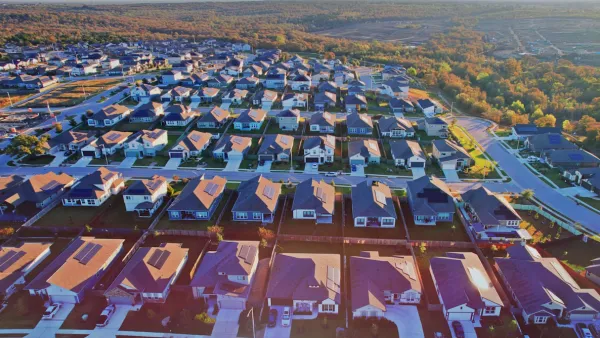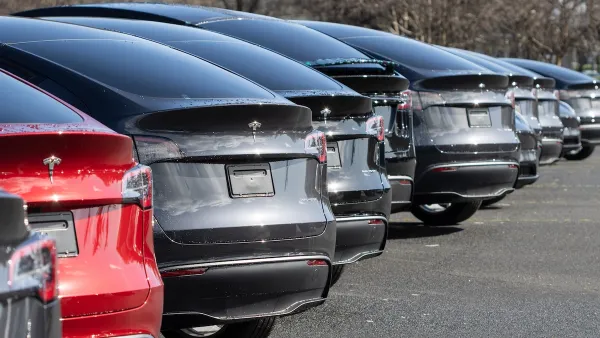A clear, detailed explanation of community land trusts—a growing model for retaining affordable housing and neighborhood character in the face of gentrification pressures.
Alana Semuels writes about the strength of community land trusts in combating gentrification and providing affordable housing and other community benefits.
Semuels starts the story with the example of the Guadalupe Neighborhood Development Corporation (GNDC), which is working in East Austin and recently enabled the first community land trust home in the state of Texas. "Mary Ybarra bought the home for $150,000 in 2012, and pays $815 a month on her interest-free mortgage. (GNDC loaned her the money, since it was difficult to get a loan for a land-trust home.) At the time, nearby homes were going for $350,000, which would have been out of reach for Ybarra, a single mother who works as an administrator in an office."
Semuels also includes a lot of clear passages to explain how community land trusts work. SO according to Semuels's explanation, a community land trust is "a local nonprofit acquires a parcel of land and pledges to use it for purposes that benefit the neighborhood, whether that be food production or affordable housing." Samuels continues with the explanation:
"In the housing model, the nonprofit builds a home on the land and sells it to someone in need. But the nonprofit retains ownership of the land that the house sits on, leasing it to the homeowner for a designated time period, typically 99 years. Dividing the structure from the land has two important benefits: It ensures that the land won’t be sold to developers by keeping it in the community’s possession, but still allows people to buy a home and earn equity on the structure."
The article goes into a lot more detail about the kinds of neighborhoods where community land trusts are working as well as some of the regulatory and market hurdles they face in achieving success.
FULL STORY: Affordable Housing, Always

Planetizen Federal Action Tracker
A weekly monitor of how Trump’s orders and actions are impacting planners and planning in America.

Maui's Vacation Rental Debate Turns Ugly
Verbal attacks, misinformation campaigns and fistfights plague a high-stakes debate to convert thousands of vacation rentals into long-term housing.

San Francisco Suspends Traffic Calming Amidst Record Deaths
Citing “a challenging fiscal landscape,” the city will cease the program on the heels of 42 traffic deaths, including 24 pedestrians.

Defunct Pittsburgh Power Plant to Become Residential Tower
A decommissioned steam heat plant will be redeveloped into almost 100 affordable housing units.

Trump Prompts Restructuring of Transportation Research Board in “Unprecedented Overreach”
The TRB has eliminated more than half of its committees including those focused on climate, equity, and cities.

Amtrak Rolls Out New Orleans to Alabama “Mardi Gras” Train
The new service will operate morning and evening departures between Mobile and New Orleans.
Urban Design for Planners 1: Software Tools
This six-course series explores essential urban design concepts using open source software and equips planners with the tools they need to participate fully in the urban design process.
Planning for Universal Design
Learn the tools for implementing Universal Design in planning regulations.
Heyer Gruel & Associates PA
JM Goldson LLC
Custer County Colorado
City of Camden Redevelopment Agency
City of Astoria
Transportation Research & Education Center (TREC) at Portland State University
Jefferson Parish Government
Camden Redevelopment Agency
City of Claremont





























